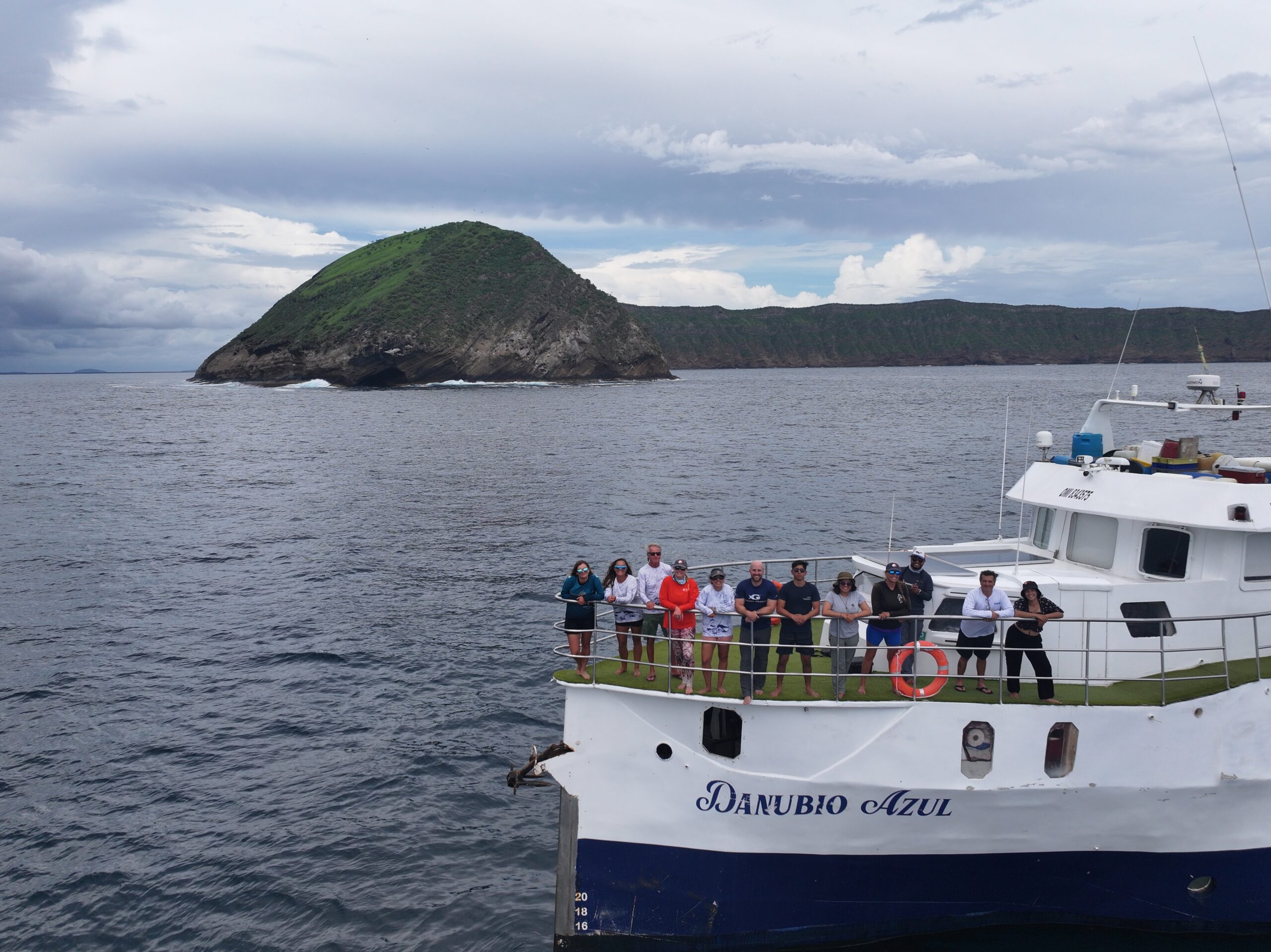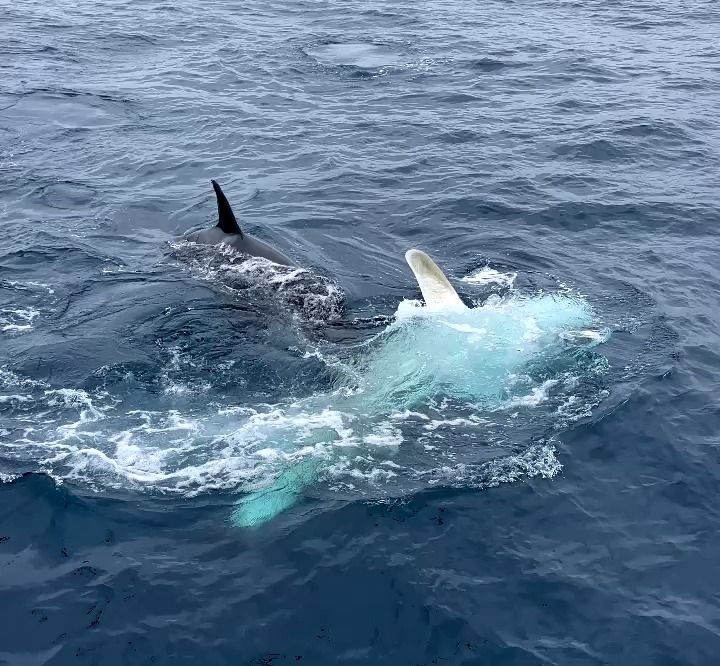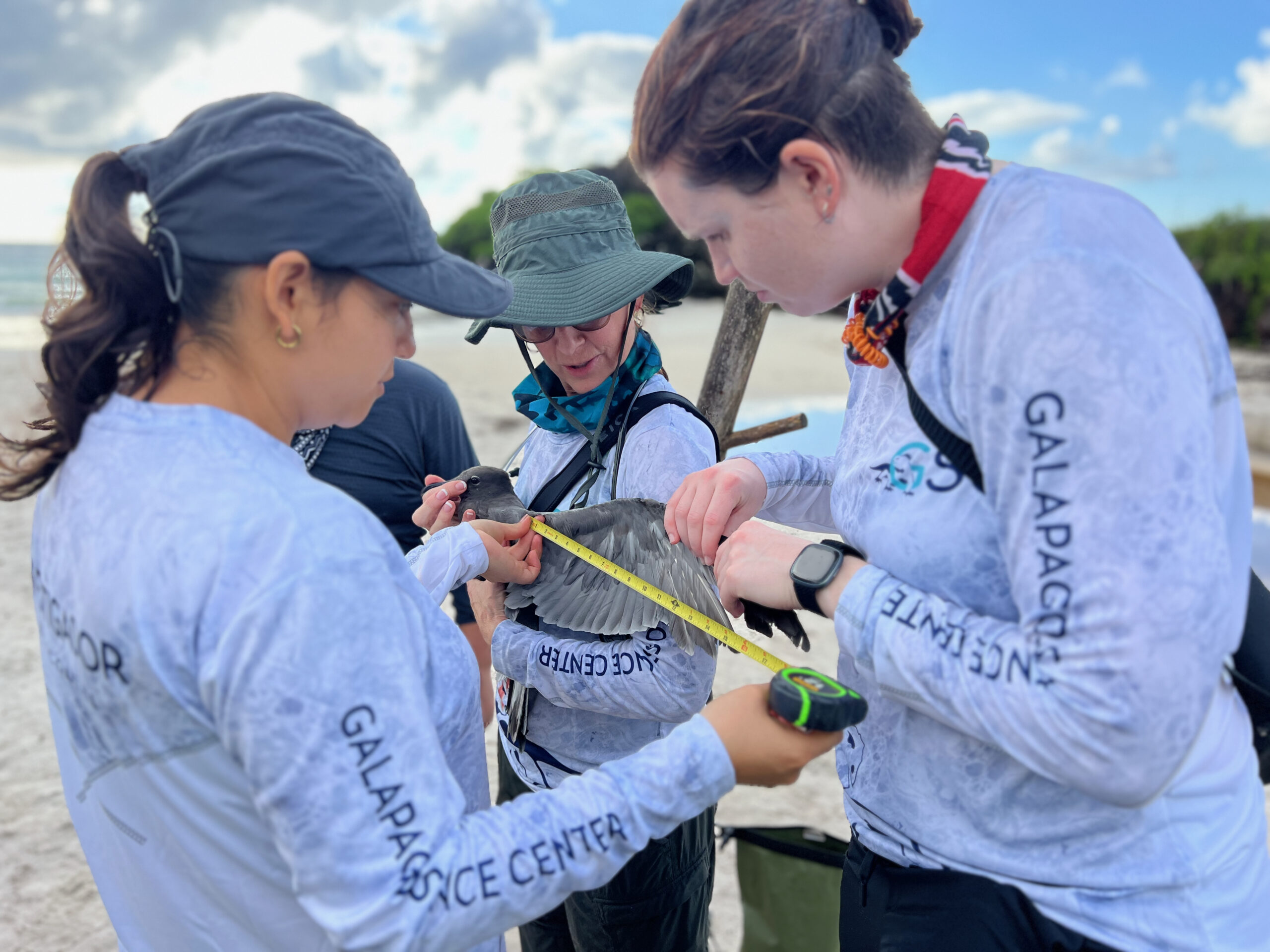Alex Hearn, profesor de la Universidad San Francisco de Quito (USFQ) e investigador del Galápagos Science Center (GSC) lleva varios años realizando investigación tanto en las islas Galápagos como en Isla del Coco- Costa Rica.
Su trabajo se ha enfocado en determinar si las especies marinas se trasladan de manera continua entre estas dos regiones y de esta manera recolectar información científica sólida para instar a las autoridades a crear y fortalecer medidas enfocadas en la protección de esta “autopista migratoria” salvaguardando la fauna mundial, el ambiente y las comunidades costeras.
Durante el primer semestre del 2021, el Doctor Hearn estuvo en la Isla de Coco para descargar los datos de una serie de receptores que detectan las marcas puestas en animales marinos.
La gran sorpresa fue la detección de una hembra de tiburón tigre, de 2.4 metros de largo, llamada “Yolanda”, cuya marca había sido colocada en el canal de Itabaca, en las Islas Galápagos en el año 2014.
“Por primera vez esta especie muestra evidencia de que se mueve a través de la “migravía”, este primer indicio es muy importante ya que este tiburón está considerado como un depredador superior,” enfatizó Hearn.
Esta, se suma a otras 6 especies altamente amenazadas; tiburones sedosos, tiburones galápagos, martillos, Tiburón ballena, tortuga verde, tortuga laud, todas ellas utilizan esta cordillera submarina para migrar entre Coco y Galápagos.






